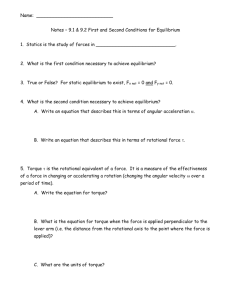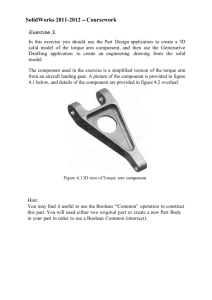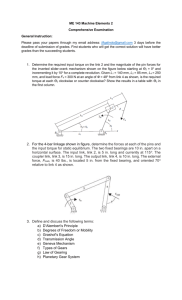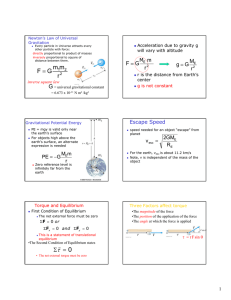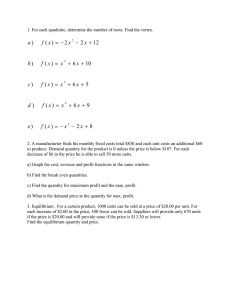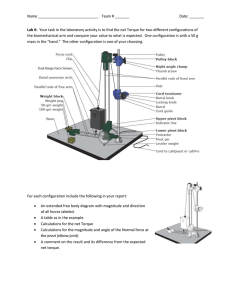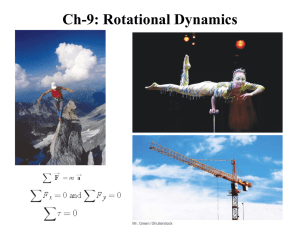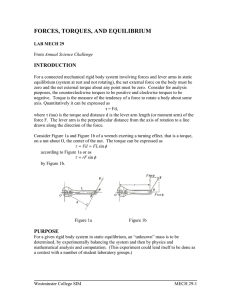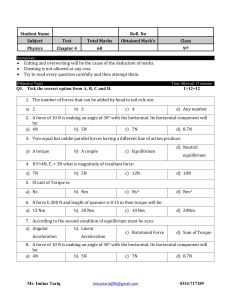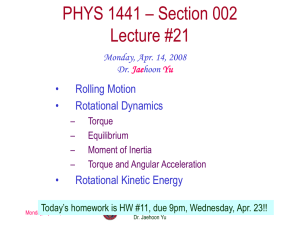Problem Solving Strategies: Static Equilibrium 8.01t Oct 8, 2003
advertisement
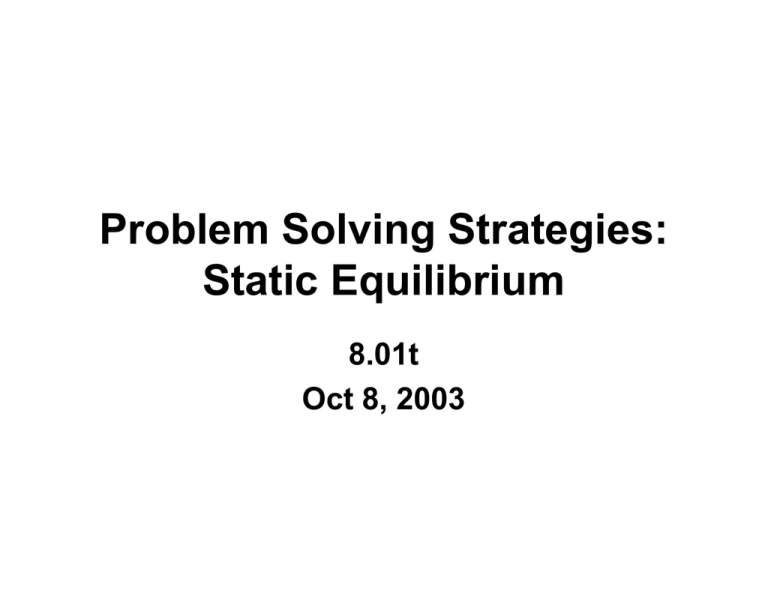
Problem Solving Strategies: Static Equilibrium 8.01t Oct 8, 2003 Static Equilibrium (1) The sum of the forces acting on the rigid body is zero G G G G Ftotal = F1 + F2 + ... = 0 (2) The vector sum of the torques about any point S in a rigid body is zero G G total G G τ S = τ S ,1 + τ S ,2 + ... = 0 Problem Solving Strategy Force: 1. Identify System and Draw Free Body Diagram 2. Write down equations for static equilibrium of the forces Torque: 1. 2. 3. Choose point to analyze the torque. 4. Calculate total torque about that point. (Note sign of torque.) 5. Write down equation for static equilibrium of the total torque. Choose sign convention for torque Line of Action of the Force • Moment Arm: • Torque: τ S = rF⊥ = rF sin θ = r⊥ F Sign Convention • Clockwise positive • Counterclockwise • positive In-Class-Problem 17 Static Equilibrium: Forearm In this problem you will solve for the upward force that the tendon exerts to keep the forearm horizontal; and the downward force that the upper arm exerts on the forearm at the elbow joint. In-Class-Problem 18 Static Equilibrium: Suspended Beam • In this problem you will solve for the magnitude of the tension in the cable and the direction and magnitude of the pivot force. In-Class-Problem 19 Static Equilibrium: The Ankle Three unknowns, T, F, and β. The angle α is determined from anatomical data. The force and torque static equilibrium equations provide the three conditions to solve the problem. By wisely choosing the point about which to compute the torque, the problem can be greatly simplified.
